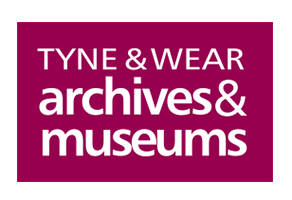Decolonisation
What does this mean?
There is no agreed definition as to what decolonisation means for museums and it can often be misrepresented or misunderstood. Tyne & Wear Archives & Museums is using the term to describe how we can acknowledge that the origins of collections might be connected to the acts of colonisation of other countries, and how we can ensure these stories are included as part of the rich and diverse stories connected to our collections. It also acknowledges that decolonisation is about addressing institutional power structures.
We believe this process provides us with an opportunity to better understand enduring legacies of empire, migration, and the experiences of diaspora communities in the region and it provides a space to reimagine a museum where those legacies no longer dictate approaches and practices.
Tyne & Wear Archives & Museums is committed to being an anti-racist organisation and we have embarked on several initiatives to ensure our organisation is tackling inequality and representation. We are in a process of learning as an organisation about the changes we need to make. We believe that decolonisation of our museums is part of this process.
What have we done so far?
Tyne & Wear Archives & Museums has a long history of working with communities of the North East including those with a diverse range of heritage and life experiences. The communities we serve want their stories and their voices visible and heard.
In 2021, the Great North Museum: Hancock undertook decolonisation strategy scoping work. This scoping work drew on the combined expertise of external consultants with experience in supporting organisations on race equity and inclusion, museum staff, as well as input from a small number of stakeholders who participated in exploratory interviews. You can read more about this on our website here: https://greatnorthmuseum.org.u...
We delivered the Exchange Project at Discovery Museum as part of a partnership with National Museums Scotland and the National Maritime Museum, funded by the Arts and Humanities Research Council. The project centred around working with Caribbean and African Diaspora communities enabling them to lead research into collections along the themes of migration, Empire and life in the UK.
One of the outcomes of the project was the We Are Here: Inspirational Women, which is now on permanent display at Discovery Museum and showcases women of colour who have made a different in Tyneside in the fields of science, academia, health care and community activism.
Following the Exchange Project we have taken what we have learned to create the Sharing Stories programme, funded by the Esmée Fairbairn Foundation. The first year of Shared Stories has focused on South Tyneside and working with the Bangladeshi community. A new exhibition co-produced by the community, Roots & Routes shares British Bangladeshi stories of South Tyneside and is on display at South Shields Museum & Art Gallery. Year 2 of the Shared Stories programme will take place at the Great North Museum: Hancock.
What are we doing now?
Via the Exchange project and Sharing Stories programme, local ethnically marginalised communities have challenged our thinking about the barriers to engagement they face within our museums. As part of the Sharing Stories programme we are continuing the work on the decolonisation strategy and have appointed a decolonisation specialist, to work with us as a critical friend, to support our strategy development and action plans (funded by the Esmée Fairbairn Foundation).
The objectives of the strategy development are:
- To define what decolonisation means in practice for Tyne & Wear Archives & Museums
- To identify how we can address colonial legacies in our collections, displays, and practices
- To establish an action plan with clear initiatives, reforms, and milestones for decolonisation
- To expand and diversify our audiences
- To ensure equitable engagement with external stakeholders
- To promote understanding and engagement among key stakeholders.
It will involve:
- Facilitating discussions with key staff across Tyne & Wear Archives & Museums and stakeholders
- Establishing an action plan for the organisation, with reforms, and milestones for decolonisation
- Producing recommendations for a final strategy document.
Following this work we will use the recommendations to help us ensure the process of decolonisation considers all relevant factors.


